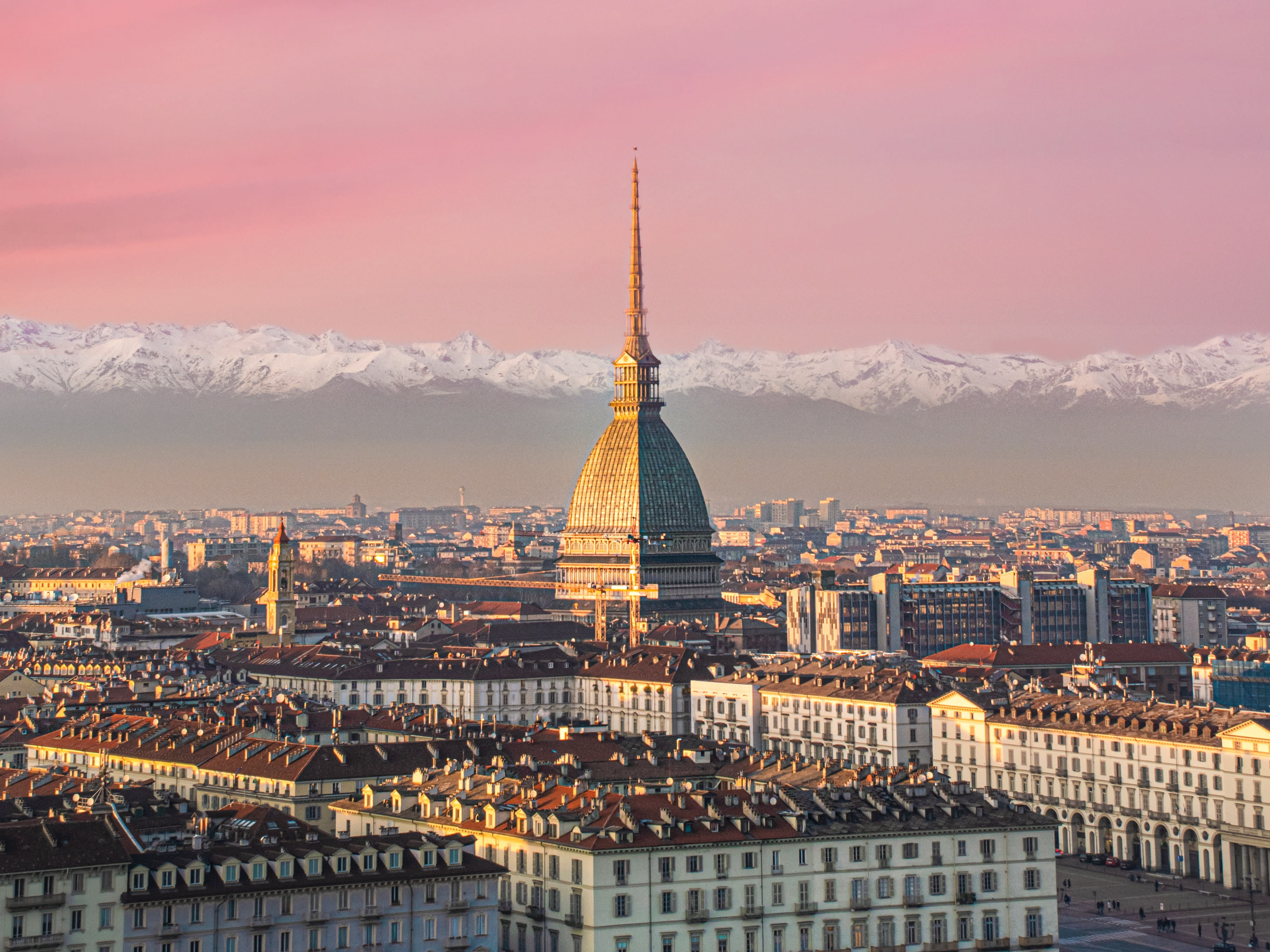Moving to Italy: 9 steps to living la dolce vita
Moving to Italy? Learn how to do it in 9 simple steps with our relocation guide. From choosing where to live to getting your bank account, we'll show you the way!
Ellie
Dreaming of moving to Italy? We get that. After all, the Italian culture, low cost of living, incredible cities, delicious food, and fun-loving people are some of the many reasons people move to Italy from abroad.
But packing up and moving to Italy takes a lot of planning. Forget one thing, and you can miss out on important paperwork and make pricey mistakes. To guide you through the entire process of relocating to Italy, we’ve made this helpful checklist.
Let's get into the essential steps of relocating to Italy.

1. Pick a city to live in
With so many incredible Italian cities to choose from, deciding the best city to live in Italy can be tricky. If cost of living is a factor and you want to maintain a low budget, you might want to search for homes in Turin. If you’re a member of the LGBTQ+ community, you should explore homes for rent in Milan as it’s a super welcoming and open community.
There’s a city in Italy for every preference and situation. However you should research what you need to know for each city. For example, English literacy is lower in the south of Italy. If you’re worried about the Italian language barrier, it’s better to find houses for rent in Florence, Milan or Bologna.
2. Plan your Italian budget
Before you move, it’s a good idea to prepare a budget so you can decide how much you can afford to spend on essentials like rent and transportation before you find a place to live. You can check out our overall guide on the cost of living in Italy if you’re not sure of your destination yet. If you already know your city check out our city-specific cost of living guides to get a more accurate idea of what you’ll spend.
Generally, the monthly cost of living in Italy is around €1,800 per month, though this varies a lot city to city.
How much you spend each month will also depend on your salary. The average salary in Italy is about €2,625 gross per month, according to Statista.
3. Apply for your Italian visa
If you’re moving to Italy from another EU/EEA country you won’t need a visa or residence permit. However, if you’re moving to Italy from the US or another non-European country, you’ll most likely need a visa and a residence permit.
The visa you’ll require will depend on your reason for moving to Italy. If you’re moving to Italy to study, you’ll need to secure an Italian student visa. If you’ve managed to find a job and secure an Italian employer, you’ll need to apply for an Italian work visa.
Regardless of which visa you require, the application process takes time to complete and to prepare for. Aim to apply at least 3 months before your planned departure date. Before you head to the embassy or consulate to apply for your visa, you’ll need to make sure you have your documents in order.
Documents you'll need for your Italian visa
There're certain documents you need to collect prior to applying for your Italian visa. The specific documents vary depending on your visa type, but generally you should have:
- A valid passport
- A completed visa application form
- Translated copies of all of your required documents
- Birth certificate/marriage certificate
- Proof of employment or enrolment
4. Search for your Italian home

If you already have a university, internship, or job placement in Italy, you probably know which Italian city you want to move to. Or you’re still researching which city is better for expats in Italy.
Either way, it’s a good idea to learn all you need to know about renting in Italy. Especially if you’re renting as a student in Italy you’ll probably need to find affordable student housing in Bologna, Milan or whatever city you decide to study in.
To help you set an expectation for what you’ll spend on rent, here’s a breakdown of rental costs based on HousingAnywhere’s Q3 2024 rent index:
| City | Room | Studio | Apartment |
|---|---|---|---|
| Milan | €715 | €1,200 | €1,800 |
| Rome | €630 | €770 | €2,500 |
| Florence | €595 | €1,115 | €1,700 |
| Turin | €520 | €652 | €1,040 |
| Bologna | €690 | €1,249 | €1,798 |
When you’re ready to book, check whether your rental agreement includes utilities, as this can add additional monthly costs.
5. Get your permit and certificate
Non-EU citizens need to collect your Italian residence permit within 8 days of arrival. To collect your residence permit you need to head to the local Questura (police station) and the post office to complete your paperwork.
Regardless of your nationality, if you're moving to Italy for longer than 3 months, you have to register your address. The process of registering your address varies slightly city to city, but generally it requires you to head to a local Anagrafe (registry office) and register your address at the counter. Shortly after, you’ll be visited by an official to confirm your address. After this, you can collect your residence certificate from the Anagrafe.
Documents needed to register your Italian address
To register at the Anagrafe, the following documents are required:
- A completed application form
- Proof that you have obtained housing (e.g. a rental contract)
- Passport or ID card and residence permit
- Valid health insurance
- 4 passport-sized photographs
- Proof that you can sustain yourself financially during your time in Italy
6. Get your Italian tax ID
If you’re going to have to pay taxes in Italy, make sure you’ve all the documents prepared for getting your Codice Fiscale (Italian tax ID). A Codice Fiscale is similar to a social security number and is needed for various reasons such as signing your employment agreement, opening a bank account, signing up for utilities, buying property, etc.
You can apply for a Codice Fiscale after you’ve registered your address at the local Anagrafe or municipality. Visit the tax office in your municipality with your passport and fill out the tax number form. You will receive the number on the spot, and an official card will be mailed to you.
7. Apply for health insurance
Most EU, EEA or Swiss citizens are covered by your European Health Insurance Card (EHIC), as it’s recognised by the SSN (the Italian healthcare system).
If you’re from a non-EU country and plan to stay in Italy for longer than 3 months, you’ll need to register with the Italian public health insurance system. Private healthcare is available, but pricey.
The cost of your public health insurance depends on your income. If you’re a student, you’ll pay about €150 to access public health insurance in Italy.
Some countries also have prior agreements with Italy’s healthcare system, such as Argentina and Australia. In this case, your country's health insurance also covers you in Italy.
All internationals should pay a visit to the nearest doctor's office, the Aziende Sanitaria Locale (ASL), and register with a doctor.
8. Open an Italian bank account
Having an Italian bank account is useful for reasons such as easily paying your rent and utility bills, splitting costs with friends, not paying for each withdrawal, etc.
Since opening an Italian bank account can take time, make sure to check with your bank at home if you can withdraw money abroad and if your card will work in Italy. It’s recommended to bring spare cash in case of emergencies.
9. Get a local SIM card
If you’re coming from an EU country, your internet will work in Italy. But calls or messages may or may not be included, depending on your plan.
Things look different when you’re coming from the USA or other non-EU countries. Your best option is to get an Italian SIM card with a monthly plan to save costs.
Optional relocation checklist items
Here’re some additional items for your relocation checklist that might not apply to all internationals relocating to Italy, but are still handy to know about.
Exchanging your driver’s licence
If you’re moving to Italy from a country that holds an agreement regarding driving licences, such as Turkey or Argentina, you can simply exchange your driver’s licence for an Italian one. But if your country doesn’t have an agreement with Italy, you’ll need to redo your driving theory and practical exam in Italy.
If you’re from an EU country, you don’t need to exchange your licence to drive in Italy.
Preparing for your pet’s relocation
If you’re moving with your pet to Italy there’re certain rules you need to follow. From knowing the vaccination requirements and whether or not your pet is allowed in Italy, knowing the rules and preparing in advance saves you from stressing at the last minute.
So now that you have read through the 7 essential steps of relocating to Italy, you can start planning your move to Italy.
Benvenuto in Italia!
This article is for informational purposes only.
Please reach out to content @housinganywhere.com if you have any suggestions or questions about the content on this page. For legal advice or help with specific situations, we recommend you contact the appropriate authorities.
Related articles
In this article
1. Pick a city to live in
2. Plan your Italian budget
3. Apply for your Italian visa
4. Search for your Italian home
5. Get your permit and certificate
6. Get your Italian tax ID
7. Apply for health insurance
8. Open an Italian bank account
9. Get a local SIM card
Optional relocation checklist items
Moving to Italy?
Book your rental accommodation from verified landlords in Italy even before relocating. No viewings needed.
Search Now

